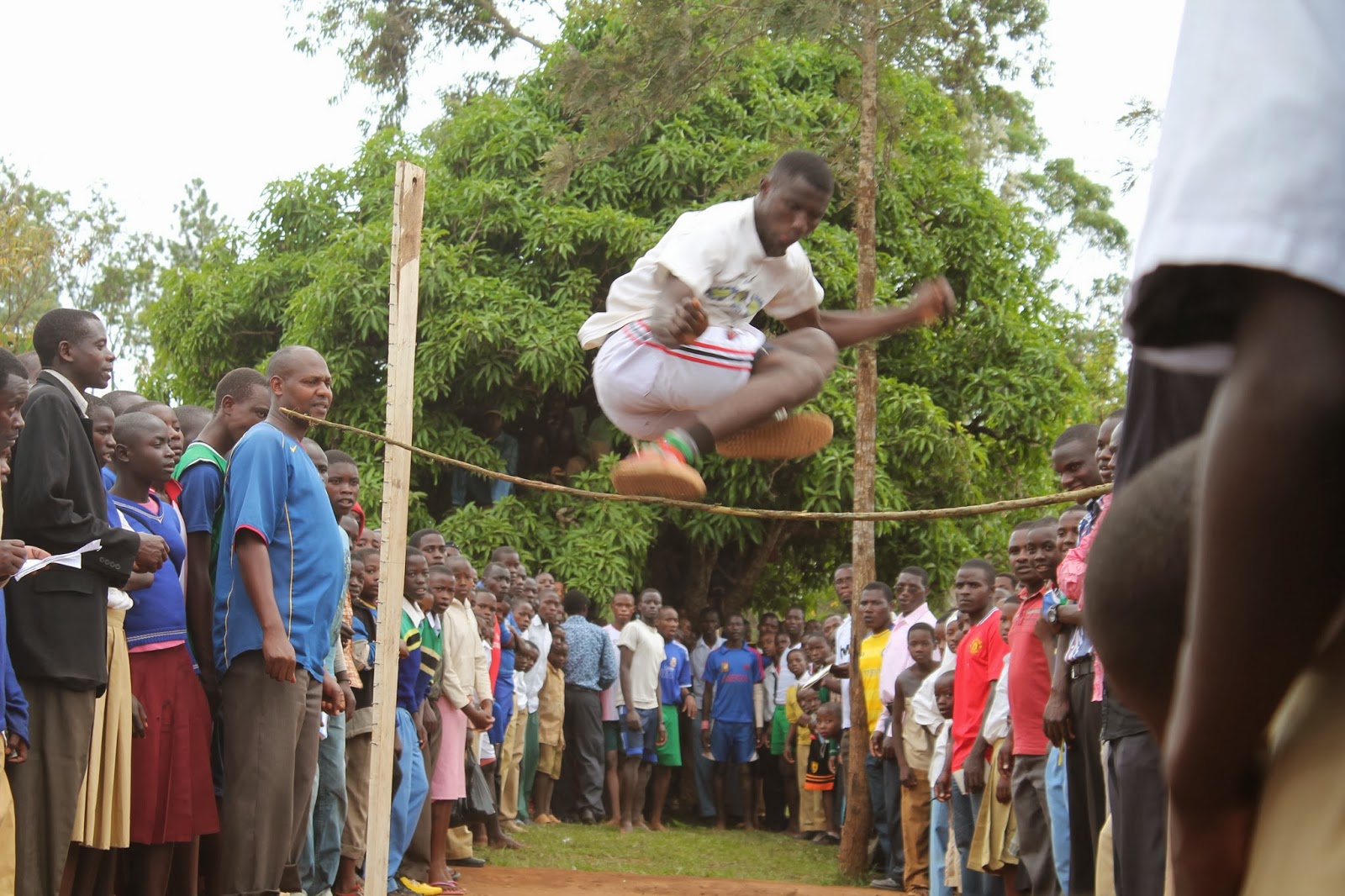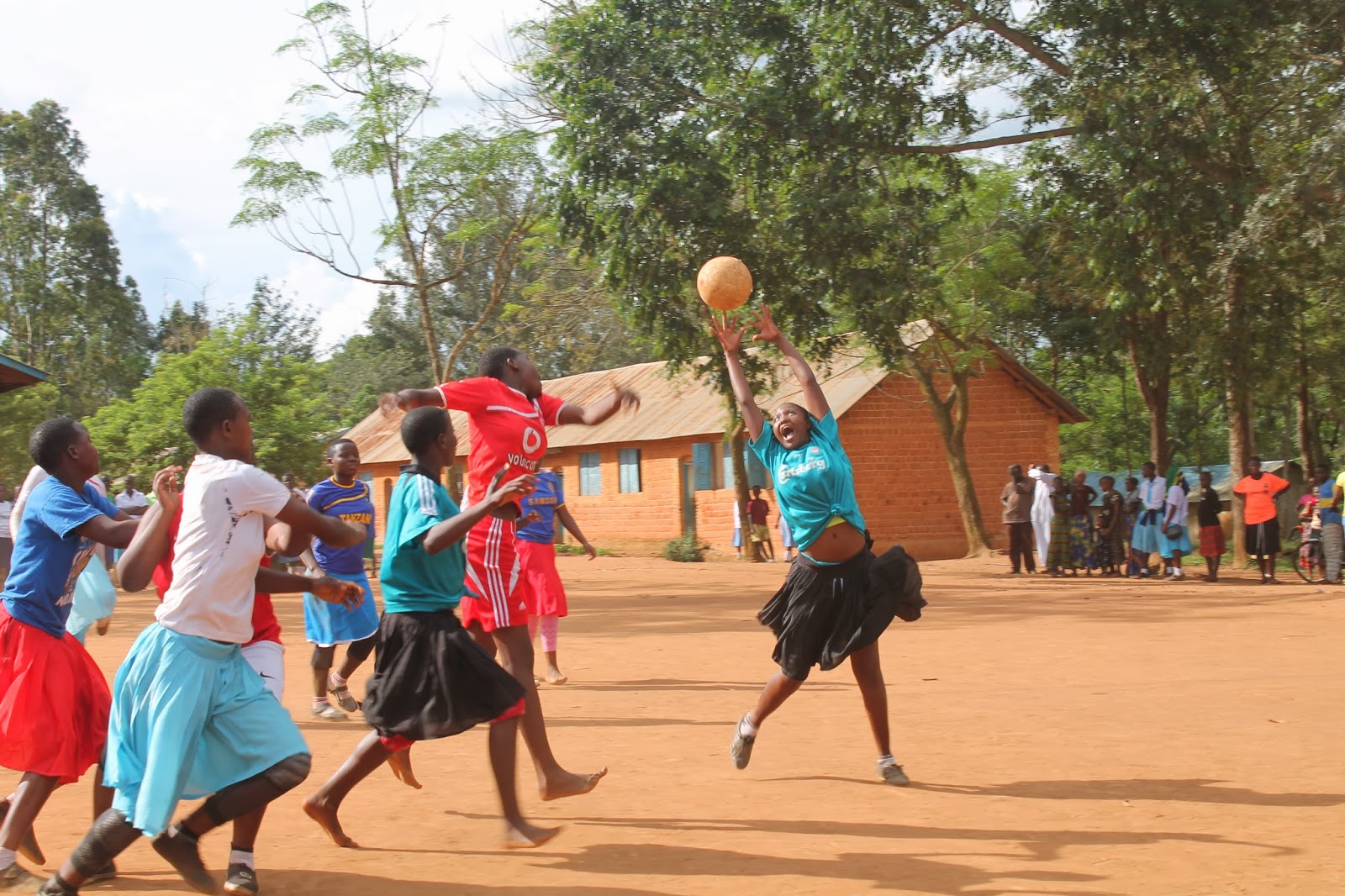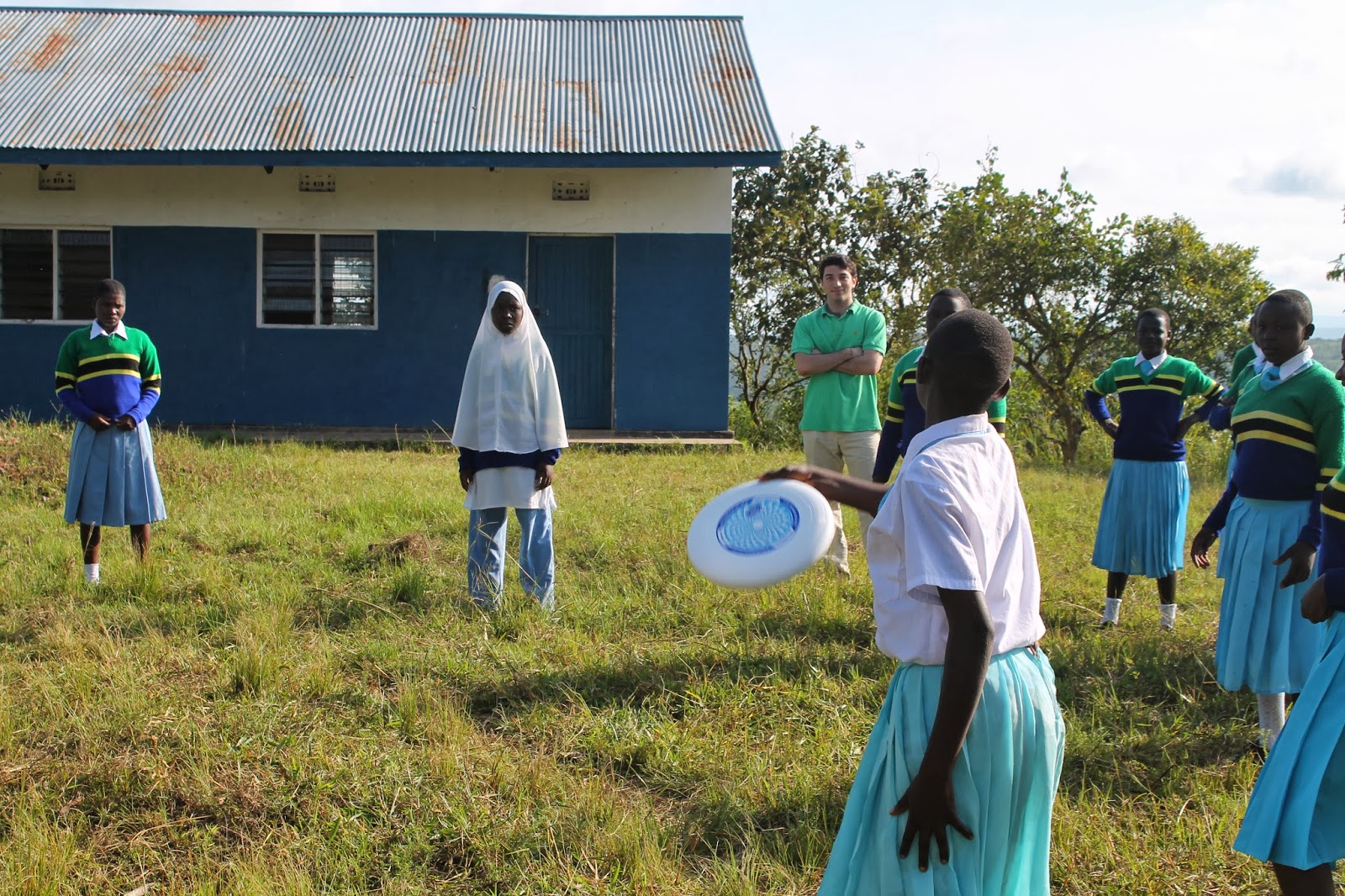Mambo!
A bunch of questions came in this week from Herman Avenue Elementary and Seward Elementary -- thanks guys! I've posted their questions below, as well as some answers!
-------
Kristen, a fourth grader at Seward wants to know what the students did on their days off from school.
On weekends, many students took the opportunity to study during the daylight hours, or helped their family with farming. Girls might help their mothers clean the house, watch the kids, or help cook lunch or dinner. However, the big market day was on Saturdays -- and that was the place for students to see and be seen! It was just like going to the mall; you wore your snazziest outfit (so people could see your style), walked around and saw what was being sold, and chatted with your friends.
A lot of students would also get their hair cut on Saturdays -- because in both primary (elementary) and secondary school, you were required to keep your hair short short short!
Reagan from Mrs. Dann's 6th Grade class and Ben and Michael who are in 4th grade at Seward
want to know: What do kids play with? What sports do they play?
want to know: What do kids play with? What sports do they play?
Most children don't have toys, so they use their imaginations a lot. I posted a picture a couple of weeks ago of a little boy playing with a toy car he made, which is common, and also kids use old bicycle tires and chase them around!
Without a doubt, the biggest sport that everyone is always talking about is football! However, when they say "football", they mean soccer, not American football. They are in love with the English Premier League and listen to the radio to hear the updates (Chelsea, Manchester United and Arsenal are top favorites).
Girls don't play football though, they like to play netball, which is a game that has hoops like basketball except that you can only throw the ball to one another while jumping, so it's a little different.
Each year, all of the schools train their students for a nation-wide sports competition. For the competition, students participate in different running events, team sports (football, volleyball and netball) and also the long and high jump. I've put a bunch of pictures below for you to see them playing!
 |
| My girls running a distance race |
 |
| The start of a sprint race |
 |
| Long Jump |
 |
| High Jump |
 |
| High Jump (seriously high!) |
 |
| Football |
 |
| Netball |
Finally, when I was in Tanzania, one of my friends came to visit and brought with him a few Frisbees. When we first showed them, they asked why Americans play with plates!
So, we taught all of the students how to play Frisbee (and that it is made of plastic, not a plate!), and left the Frisbees at the school for them to play with on Fridays.
Here's some pictures of them in action!
 |
| The girls practicing with my friend Matt |
 |
| Dawsoni ready to throw (he's a Nyota Scholar!) |
 |
| Linus showing good form |
Caitlyn in Mrs. Messina's 6th Grade class is wondering what types of foods you ate while you were in Tanzania.
My post on Monday will be ALL about food, so you only have to wait a couple more days to find out!!!
Amber from Mrs. Messina's 6th Grade Class wants to know:
How did you feel when you first got to Tanzania? Was it difficult to get used to the language?
Amber, what a great question! This was actually my second time visiting Tanzania so I knew what to expect, the only difference was I was about to LIVE there for ten whole months! I was very excited, but I was also a bit nervous because I still didn't know where in the country I was going to be teaching. Also, it was a very long time to be so far away from home.
As for the language, it definitely took a little while to realize that I couldn't just start speaking in English when I saw somebody. But I have been studying Swahili for a few years now, and I was happy to be in a place where I could practice...a lot!
Amber, what a great question! This was actually my second time visiting Tanzania so I knew what to expect, the only difference was I was about to LIVE there for ten whole months! I was very excited, but I was also a bit nervous because I still didn't know where in the country I was going to be teaching. Also, it was a very long time to be so far away from home.
As for the language, it definitely took a little while to realize that I couldn't just start speaking in English when I saw somebody. But I have been studying Swahili for a few years now, and I was happy to be in a place where I could practice...a lot!
Caitlyn from Mrs. Dann's 6th Grade class asks:
Are you still in contact with the people in Tanzania?
I am in contact with some of the people I met and worked with in Tanzania through email. However, my students don't have access to email and they are not allowed cellphones, and the cost of calling Tanzania is also extremely expensive, so unfortunately, I do not get to talk to them as much as I would like to.
But Josias, who helps me run my scholarship fund, meets with students regularly and passes on my greetings to them, and then they relay it back to him to tell me! So I am lucky that Josias is able to communicate for me.
------
Looking forward to more questions, and to meeting you all in a month!
Baadaye,
Marisa
I am in contact with some of the people I met and worked with in Tanzania through email. However, my students don't have access to email and they are not allowed cellphones, and the cost of calling Tanzania is also extremely expensive, so unfortunately, I do not get to talk to them as much as I would like to.
But Josias, who helps me run my scholarship fund, meets with students regularly and passes on my greetings to them, and then they relay it back to him to tell me! So I am lucky that Josias is able to communicate for me.
------
Looking forward to more questions, and to meeting you all in a month!
Baadaye,
Marisa












.JPG)